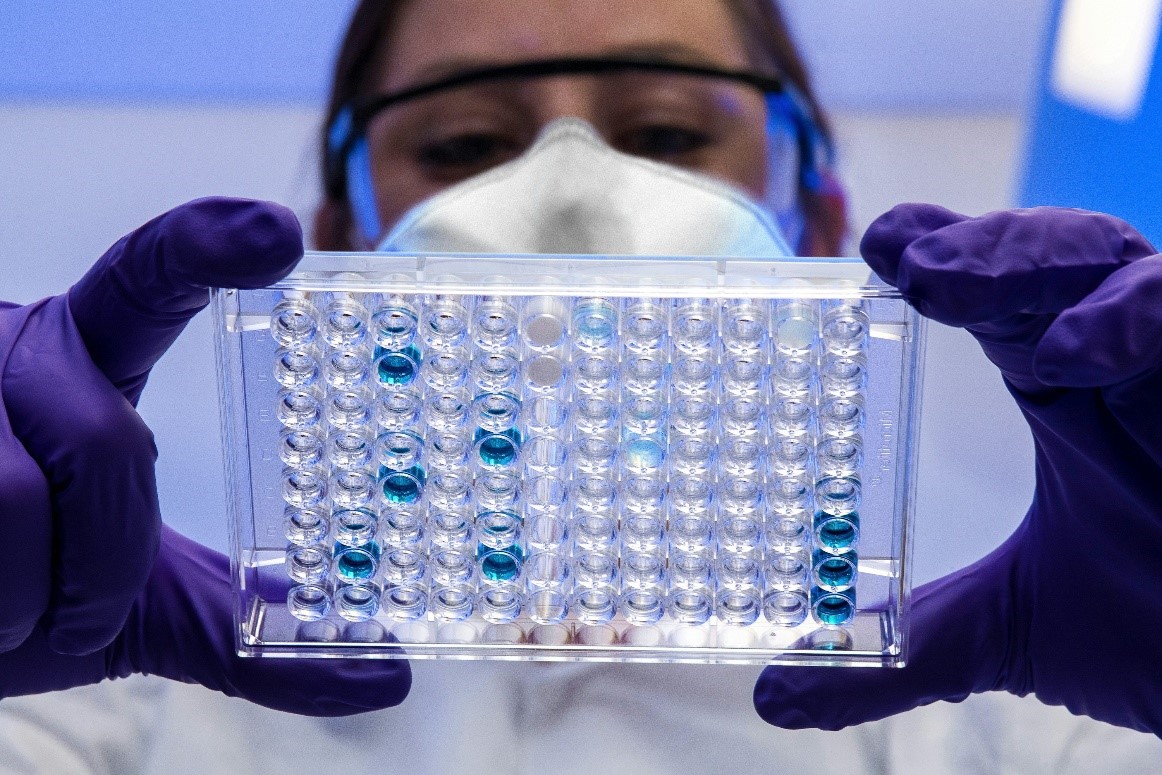Key takeaways:
In part 1 of our Resilience series, we laid the foundation of what it truly means for businesses to be resilient. Businesses must move beyond static strategic planning and adopt an agile mindset to become disruption-ready. Only then will they be able to thrive amidst constant change.
In part 2, I want to take a step back. I'd like to share my prior experiences with microbes, my fascination with these highly robust organisms and the lessons I’ve learned about resilience, that can be applied to all businesses, regardless of size or industry.
The Relentless Adaptability of Microbes

My time studying microbiology, particularly antimicrobial resistance, left me utterly fascinated by bacteria. Think about it: you can throw every drug and harsh chemical imaginable at them, and they don't just survive; they adapt, they get stronger, and they truly thrive.
This same drive can be applied to the business world. Change is the only constant, and the sheer pace and unpredictability of our modern landscape mean companies either innovate or risk fading into obscurity. Relying solely on annual strategic plans won’t be enough anymore.
This article dives into how the seemingly simple world of microbes offers profound, battle-tested lessons on resilience — the ability to absorb a punch, and continuous innovation — the smarts to truly thrive when everything shifts. We’ll explore these key microbial strategies and translate them into actionable insights for leaders ready to navigate any disruption.
Microbial Blueprints for Business Resilience
Microbes don't wait; they're in a perpetual state of genetic mutation and adaptation. This relentless process of innovation is strikingly evident in antimicrobial resistance. Antimicrobial resistance is achieved when microbes continuously evolve and render previously effective drugs ineffective, making infections harder to treat. Microbes never settle for a "fixed" state, constantly finding new ways to outmanoeuvre threats.
Businesses must embed continuous adaptation into their DNA, not just as a reaction, but as an ongoing process of refining products, services, and operational models to consistently stay ahead. Leaders need to cultivate a mindset where "finished" is simply a temporary milestone, and continuous learning and adaptation are the everyday norm.
Every ‘mutation’ works just like an experiment. With incredibly short generation times and high mutation rates, microbes perform countless "experiments" at an astonishing pace. Failed mutations perish quickly, allowing successful ones to propagate exponentially. It’s a brutal yet remarkably efficient learning loop.
Organisations should embrace a culture of rapid prototyping, developing minimum viable products, and fast feedback cycles. Action and speed are key. Encourage frequent, small-scale experiments and, crucially, learn quickly and cheaply from what doesn't work. For leaders, this means fostering a psychologically-safe environment where trying many experiments and failing fast is celebrated, not feared. Ongoing failure in the name of innovation needs to be accepted as part of the norm.
Microbes rarely put all their survival "eggs" in one basket. They develop multiple, often redundant, defence mechanisms and resistance strategies. If one approach fails, others might still work, significantly enhancing their chances of survival.
Businesses should learn from this by actively avoiding over-reliance on single revenue streams, suppliers, markets, or technologies. Diversifying the business’s portfolio, supply chain, and customer base builds inherent robustness, acting as a crucial buffer against unexpected shocks. Leaders should build redundancy and alternative pathways in all critical areas of their operations.
Leverage on shared information

Microbes live in colonies consisting of their kin working harmoniously to ensure collective success. Each member of the colony continuously evolves individually and tests out its own innovative traits. When one finds a successful trait, they actively share the beneficial information, such as resistance genes, with other members of the colony. This ‘knowledge transfer’ dramatically accelerates collective adaptation, hence, strengthening the colony as a whole from threats.
For businesses, this highlights the immense power of promoting transparency, open knowledge sharing, and cross-functional collaboration. Break down organisational silos and actively encourage the rapid dissemination of best practices, new insights, and innovative solutions across your entire organisation. Leaders should design structures and foster a culture that actively rewards sharing and collective problem-solving, rather than hoarding information. An organisation thrives only when every department works together and shares each other’s best practices.
Microsoft: A case example of evolving and thriving over time
Microsoft started out focused on developing software for early personal computers in the 70s and was seen as a traditional software giant primarily due to the success of Windows and Office. Under CEO Satya Nadella’s leadership, Microsoft became a prime example of how large enterprises, which are often riddled with legacy processes, can embody the microbial lessons of resilience.
Microsoft fundamentally redefined its core identity from ‘Windows-first’ to ‘Cloud-first, AI-first’. This was a reorientation of their strategy as they pivoted towards cloud services (Azure) and subscription models. Azure grew to become the second-largest cloud provider globally, with growth reaching 33% in Q1 FY2025.
Microsoft’s investments in OpenAI further cemented Azure’s position, as Azure monetizes all workloads involving OpenAI’s Large Language Models (LLMs) and any application that runs on its infrastructure. While Windows remains Microsoft’s bread-and-butter, pivoting to cloud services allowed Microsoft to continue to grow.
Microsoft strategically diversified its business portfolio away from operating systems and desktop applications. It invested heavily in cloud computing, gaming (Xbox), social media (LinkedIn), and open-source development (GitHub). This ensures that if any of their business verticals face a downturn, others can continue to sustain growth.
Under Nadella, Microsoft shifted towards an agile, ‘fail fast, learn faster’ culture, which was especially evident in its cloud and software development. Microsoft continuously releases updates, tests new features with users, and iterates based on real-world feedback.

While we’ve seen many successful innovations from Microsoft, an example of a failed innovation came before Nadella in the form of Microsoft Kin. Microsoft banked on the rise of social media platforms such as Myspace and Facebook and launched Microsoft Kin ONE in June 2010 to target this upcoming wave of internet users. Its operating system was confusing, and could only access the social media sites without being able to download apps (e.g. games, planners etc.). Bear in mind that the first iPhone launched three years ago in 2007. Kin ONE’s sales were poor leading to the phones being on shelves for only 48 days. Microsoft did not give up with their Kin series and launched Kin TWO just 5 months after Kin ONE was taken off the shelves. Without significant upgrades to Kin ONE, Kin TWO too had poor sales. The Kin project was shut down just two months later in January of 2011.
Nadella explicitly championed breaking down the notorious silos that once hindered innovation at Microsoft. He fostered a ‘growth mindset’ culture, encouraging collaboration and sharing of knowledge across teams and divisions.
Microsoft’s journey demonstrates that lessons we identified from microbes are highly pertinent to the success of businesses and that even the largest organisations can continue to evolve and thrive in the face of constant disruptions.
Applying the Lessons Learnt to Your Business Strategy
Integrating these powerful "microbial" principles demands a shift towards a dynamic strategic approach where change happens daily rather than every 3-5 years. True innovation, as taught by nature, isn't just about creating new products; it's about continuously discovering new ways of thinking, operating, and adapting your entire organisation. Ultimately, staying nimble and always innovating are the core lessons that will enable your business to not just survive, but truly thrive amidst constant disruption.
Conclusion
The profound but often overlooked lessons available in the natural world offer an unparalleled blueprint for corporate success and longevity. By learning from the planet's oldest and most persistent survivors, business leaders can transform their organisations into the ultimate adaptable entities. This approach ensures you're not just surviving the next disruption but emerging stronger, more innovative, and ready to seize new opportunities.
You may be thinking: My company is large and highly successful. There’s no need to change how we do things. You’ll be surprised at how many giants have fallen and have been overtaken by smaller organisations who chose to innovate rather than accept the status quo. We’ll discuss cases of such instances in our 3rd and final article in our Resilience series, where we'll delve into Overcoming Disruptions.
At Binomial Consulting, we focus on strategic planning and innovation that help businesses identify challenges and plan ahead to not only to survive those challenges, but to thrive in the era of disruptions. Contact us to build your business resilience today!